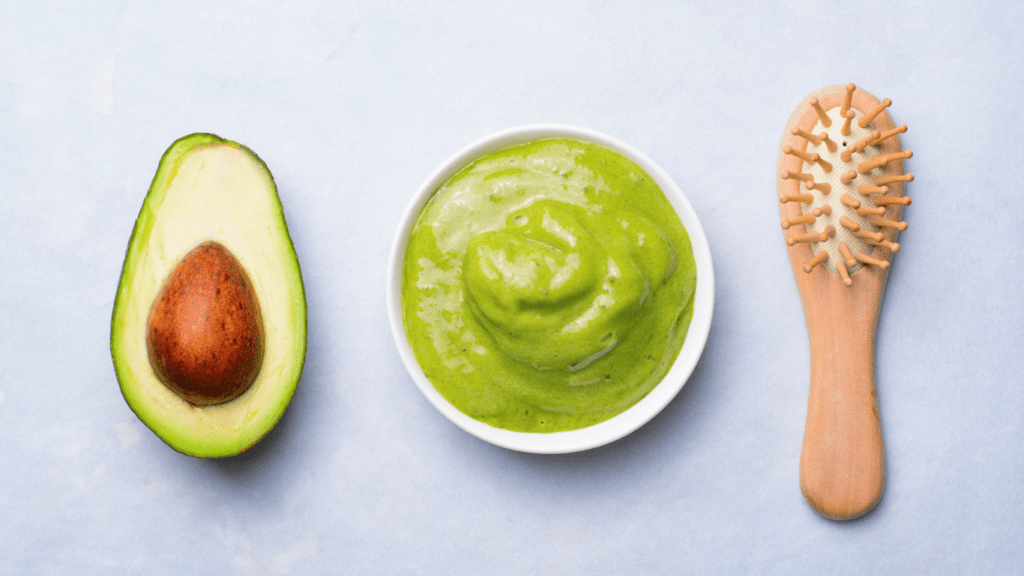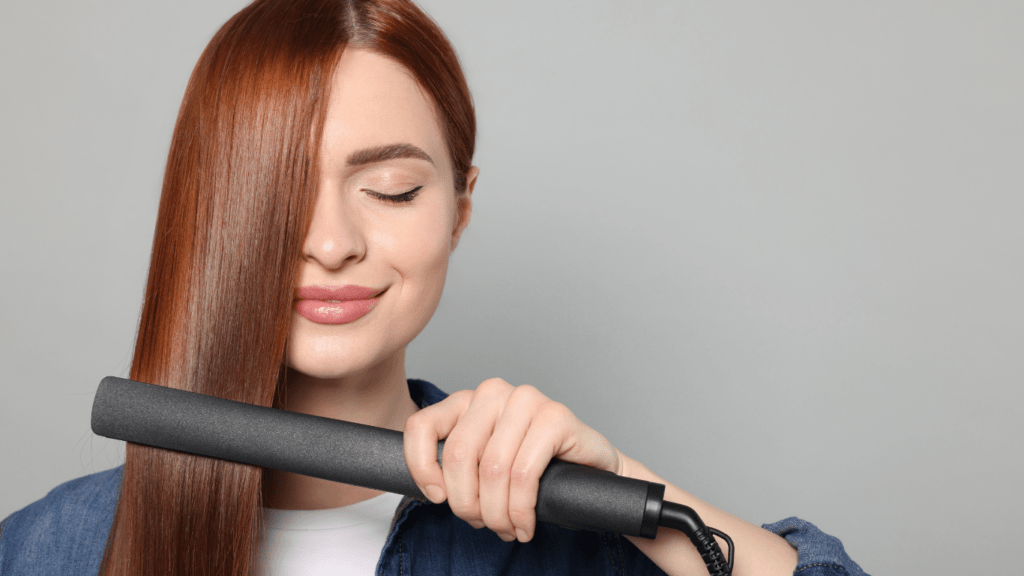Importance of Deep Conditioning
Deep conditioning plays a vital role in maintaining healthy hair. It restores moisture lost due to heat styling, chemical treatments, and environmental factors. Regular conditioners don’t offer the same level of penetration, making deep conditioning essential for achieving optimal hair health.
Hydration anchors the importance of deep conditioning. Healthy hair strands require adequate moisture to stay strong and flexible. Moisture reduces breakage and split ends, keeping frizz at bay. Deep conditioning treatments deliver intense hydration that’s not possible with everyday conditioners.
Repair is another crucial benefit. Hair gets damaged from styling tools and environmental aggressors such as pollution. Deep conditioning masks repair this damage by supplying essential nutrients like proteins and vitamins. Frequent use of these masks leads to improved hair texture and elasticity.
Protection acts as a preventive measure. Deep conditioning forms a barrier around hair cuticles, protecting against future damage. This barrier also helps lock in moisture, making hair less prone to drying out from external elements like sun exposure or harsh winds.
Deep conditioning enhances manageability. Tangles and knots become easier to work through with well-conditioned hair. This simplifies styling routines and reduces the time spent on detangling, especially for those with longer or thicker hair types.
Deep conditioning treatments bring out natural shine. Infusing hair with nutrients and moisture boosts its luster. Well-conditioned hair reflects light better, giving it a healthy, glossy appearance.
Consistency is key for deep conditioning to yield the best results. Incorporate these treatments into your regular hair care routine for long-lasting benefits. Whether dealing with dryness, damage, or seeking to enhance natural beauty, deep conditioning masks are indispensable.
Key Ingredients to Look for in Hair Masks
The efficacy of deep conditioning hair masks hinges on their ingredients. Selecting masks with the right components ensures optimal results for various hair types and concerns.
Natural Oils
Natural oils provide deep nourishment and hydration. Coconut oil, for instance, is renowned for its ability to penetrate the hair shaft and reduce protein loss. Argan oil, rich in antioxidants and essential fatty acids, boosts hydration and shine. Jojoba oil, mirroring scalp sebum, balances moisture levels and promotes scalp health.
Proteins
Proteins strengthen hair by repairing structural damage. Keratin, a key protein in hair, restores strength and elasticity to weakened strands. Hydrolyzed proteins, like silk or wheat proteins, penetrate the hair cuticle and fill in gaps, reducing breakage and enhancing smoothness.
Vitamins and Minerals
Vitamins and minerals are essential for overall hair health. Vitamin E, a potent antioxidant, protects hair from oxidative stress and improves elasticity. Biotin (Vitamin B7) promotes hair growth and strengthens hair follicles. Minerals like zinc and iron support hair structure and prevent brittleness.
Hair masks containing these key ingredients ensure deep conditioning, revitalizing, and protecting your hair from future damage.
Top DIY Hair Masks

Creating DIY hair masks at home offers a cost-effective way to deeply condition and revive your hair. Here are some of the best DIY hair masks you can try.
Avocado and Honey Mask
Avocado intensely moisturizes hair due to its rich fatty acids, while honey adds shine and repairs damage. To make this mask, mash half an avocado and mix it with two tablespoons of honey. Apply the mixture to your hair, focusing on the ends where damage is often greatest. Leave it on for 20 minutes and rinse thoroughly with warm water.
Coconut Milk and Aloe Vera Mask
Coconut milk hydrates hair and adds strength through its high-fat content, while aloe vera soothes the scalp and promotes hair growth with its vitamins and minerals. For this mask, blend half a cup of coconut milk with three tablespoons of aloe vera gel. Apply the mix evenly across your scalp and hair. Let it sit for 30 minutes before rinsing it off with cool water.
Banana and Olive Oil Mask
Bananas provide essential nutrients like potassium and natural oils, whereas olive oil offers deep nourishment and helps to repair damage. To prepare this mask, mash one ripe banana and mix it with two tablespoons of olive oil. Apply it from roots to tips of your hair, leave it on for 15-20 minutes, then wash out with lukewarm water.
Best Store-Bought Hair Masks
Deep conditioning hair masks come in various options, catering to different needs and budgets. Here are some of the best store-bought varieties for deep conditioning at home.
High-End Options
High-end hair masks often combine premium ingredients for superior results.
- Olaplex No. 3 Hair Perfector: Renowned for its bond-building technology, Olaplex No. 3 repairs damaged hair and strengthens it from the inside out. It’s a favorite among professionals for restoring even severely damaged hair.
- Moroccanoil Intense Hydrating Mask: Infused with argan oil, this mask deeply hydrates, revitalizes, and improves the texture of hair. It’s suitable for all hair types and delivers smooth, glossy results.
- Oribe Gold Lust Transformative Masque: This luxurious option combines white tea, baobab, and jasmine extracts to rejuvenate and nourish. Ideal for restoring elasticity and shine, it transforms dull, lifeless hair into vibrant and healthy strands.
Budget-Friendly Options
Quality deep conditioning doesn’t always require a hefty price tag.
- Aussie 3 Minute Miracle Moist Deep Conditioner: This affordable mask features Australian aloe and jojoba oil. It’s designed to hydrate and soften hair in just three minutes, making it perfect for those short on time.
- SheaMoisture Raw Shea Butter Deep Treatment Masque: Infused with shea butter, sea kelp, and argan oil, this mask repairs and restores dry, damaged hair. It’s a wallet-friendly solution that provides deep nourishment and hydration.
- Garnier Fructis Damage Repairing Treat 1 Minute Hair Mask: Formulated with papaya extract, this quick mask targets hair damage and delivers immediate softness and smoothness. It’s a convenient and effective option for budget-conscious users.
How to Apply Hair Masks for Best Results
Applying hair masks correctly ensures maximum benefits for your hair. Follow these steps for salon-quality results at home.
Preparation Steps
Start by selecting the right hair mask for your hair type and needs. Use a wide-tooth comb to detangle your hair and remove any knots. Wash your hair with a gentle shampoo to remove buildup, then lightly towel-dry, leaving it damp but not dripping.
Application Techniques
Divide your hair into sections to ensure even application. Use a brush or your fingers to apply the mask, starting at the roots and working towards the ends. Focus on areas that need the most attention, like the tips if they’re damaged. For longer hair, tie it up in a loose bun to avoid mess.
Post-Application Care
Leave the mask on for the recommended time stated on the product, usually between 5 and 30 minutes. For deeper conditioning, cover your hair with a shower cap and wrap a warm towel around it. Rinse thoroughly with lukewarm water, ensuring no residue remains. Avoid using any heat styling tools immediately after to let your hair absorb the full benefits of the mask.


 Jewelldane Fultz is a skincare specialist and beauty enthusiast who has spent years studying the science behind healthy skin. Known for her expertise in formulating effective skincare routines, Jewelldane emphasizes simplicity and consistency to help people achieve long-lasting results. Her in-depth knowledge of skincare ingredients makes her a trusted source for anyone looking to enhance their natural glow.
Jewelldane Fultz is a skincare specialist and beauty enthusiast who has spent years studying the science behind healthy skin. Known for her expertise in formulating effective skincare routines, Jewelldane emphasizes simplicity and consistency to help people achieve long-lasting results. Her in-depth knowledge of skincare ingredients makes her a trusted source for anyone looking to enhance their natural glow.
